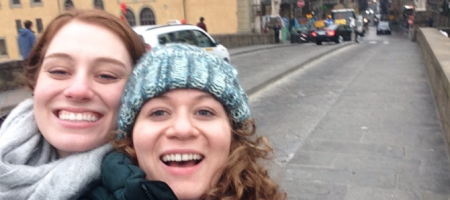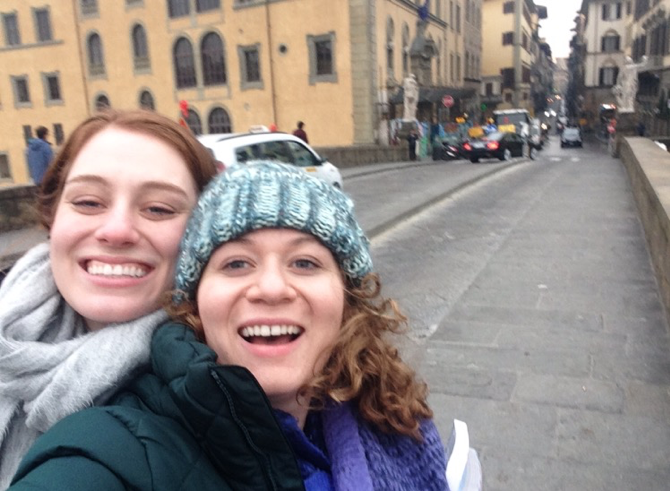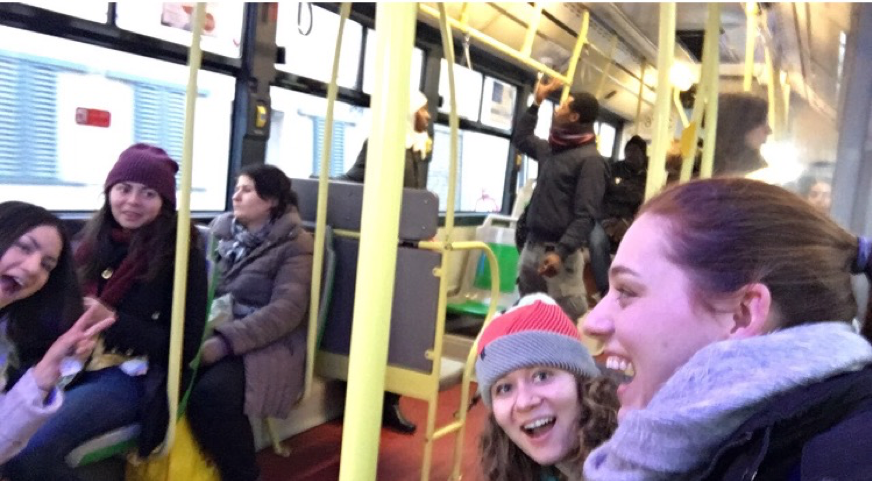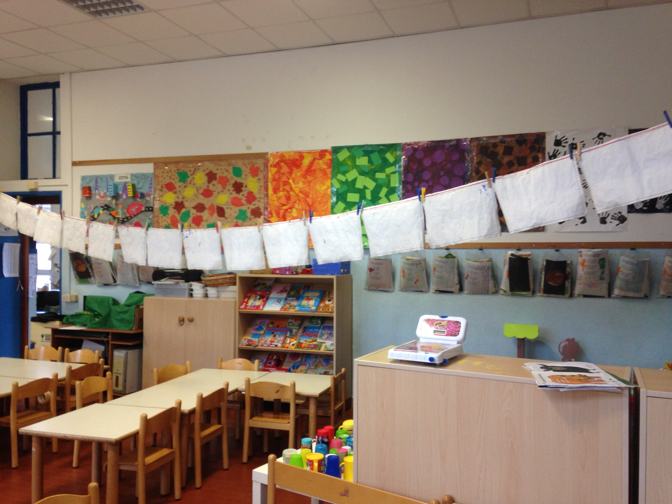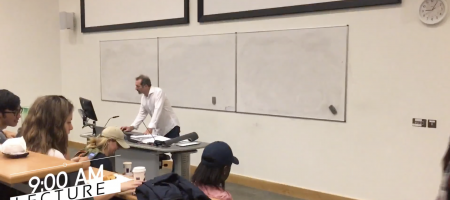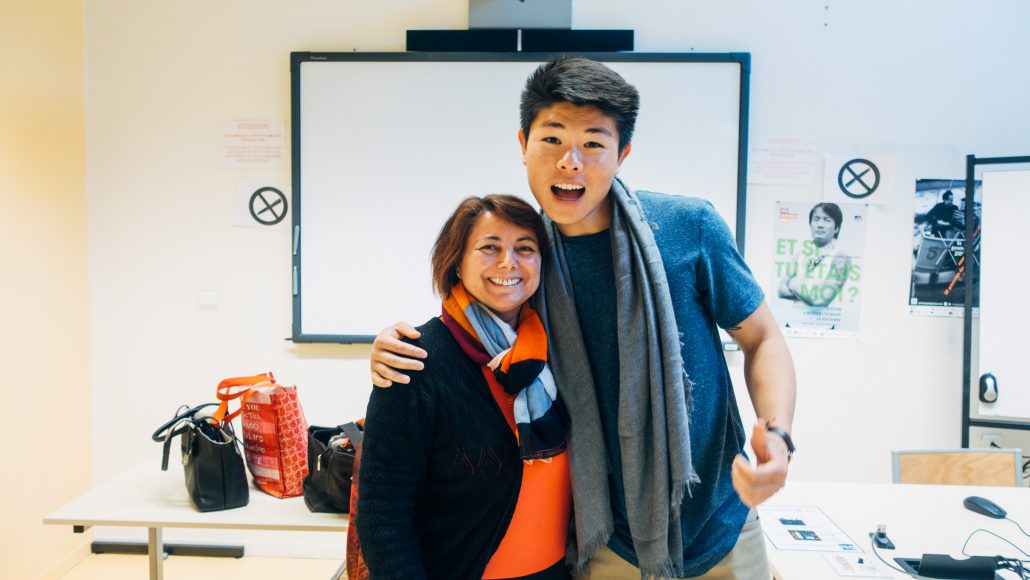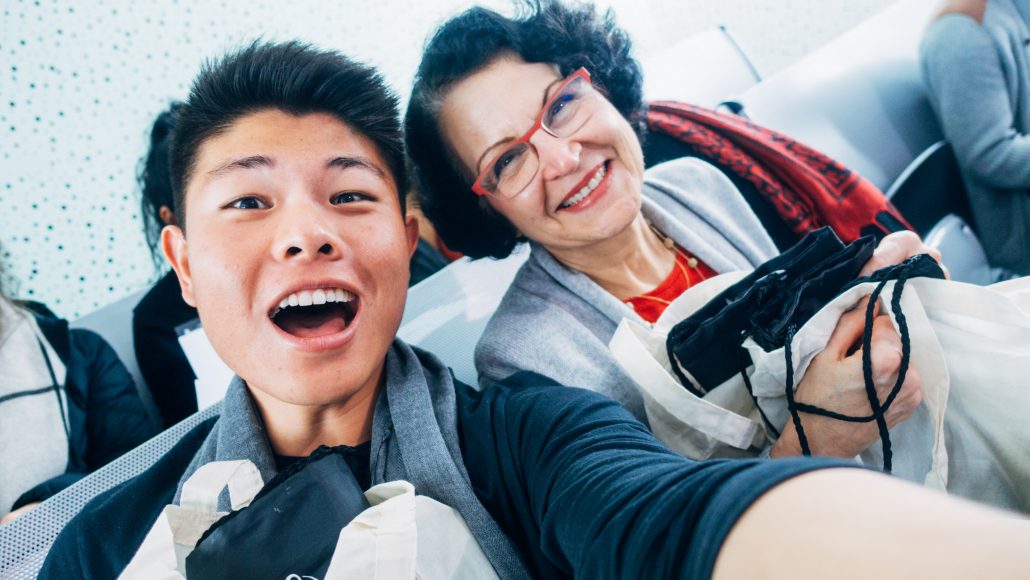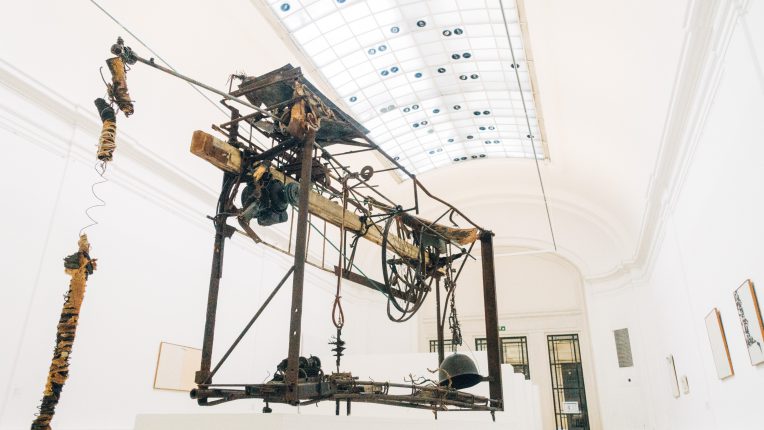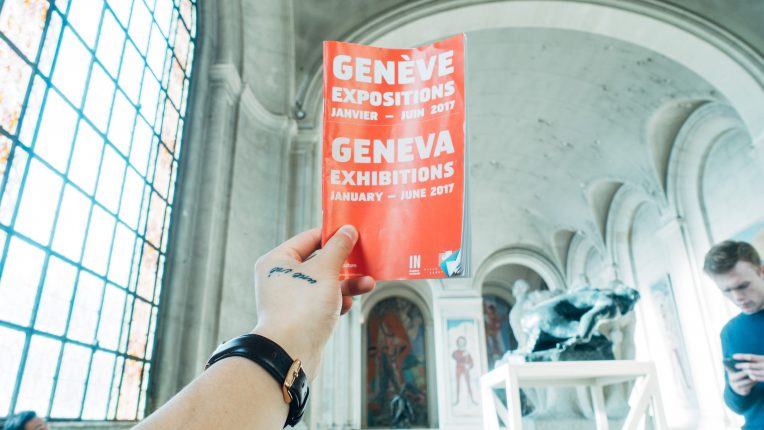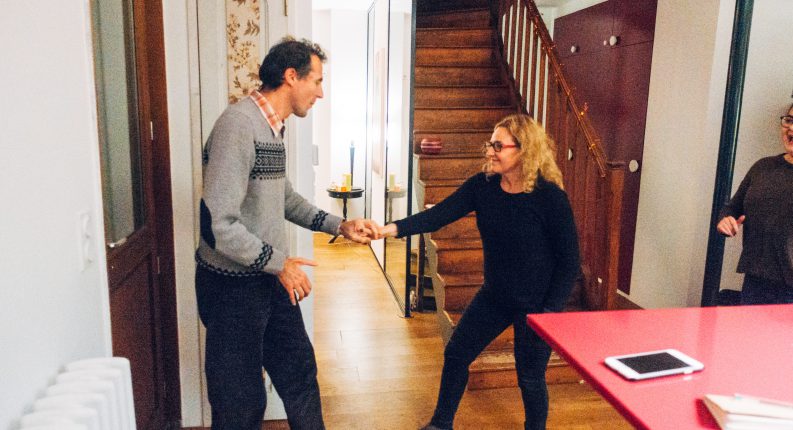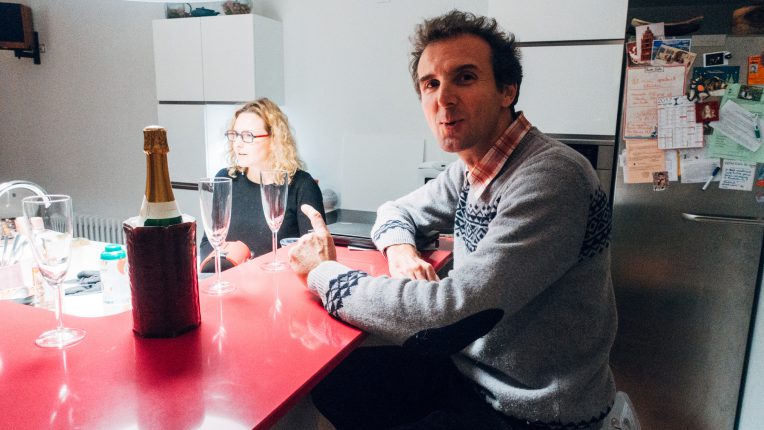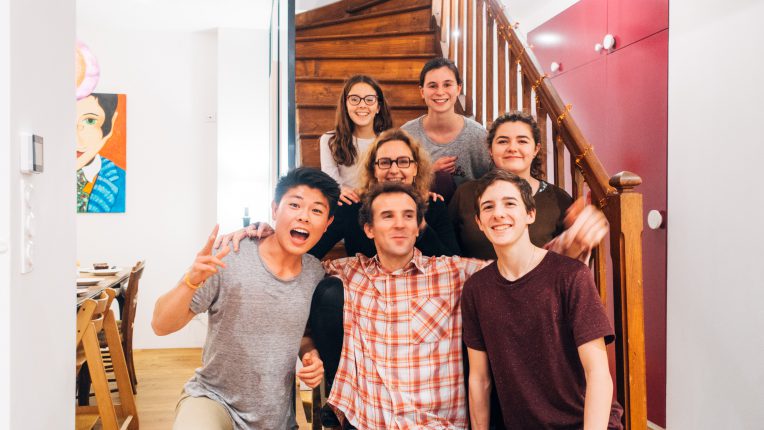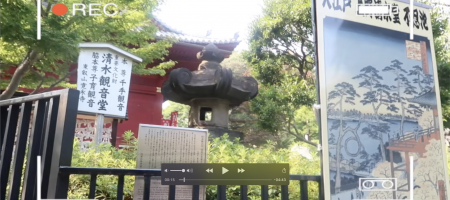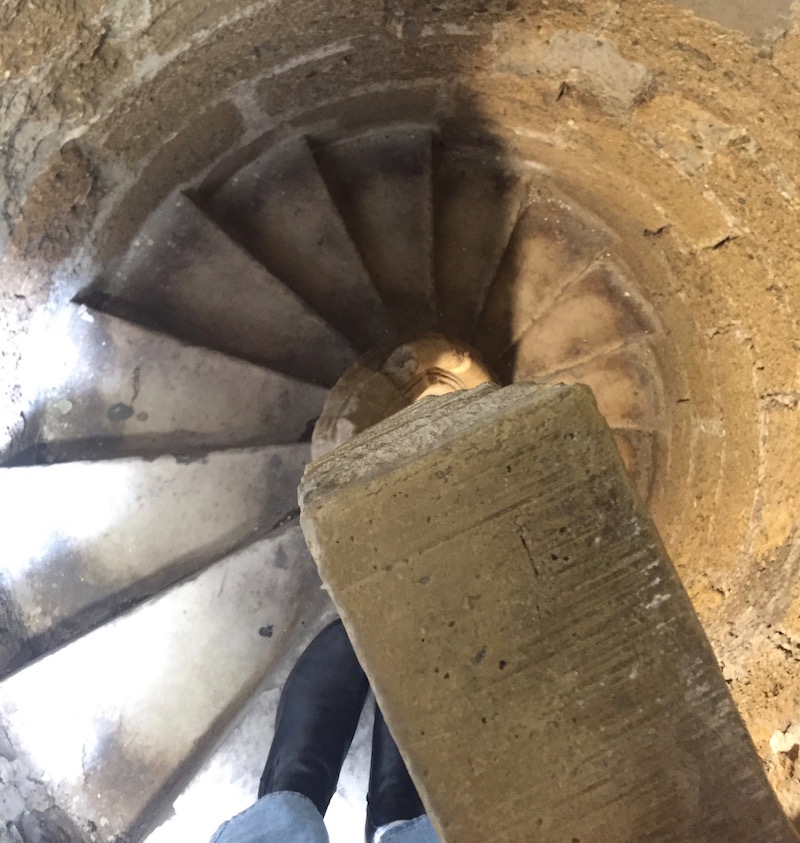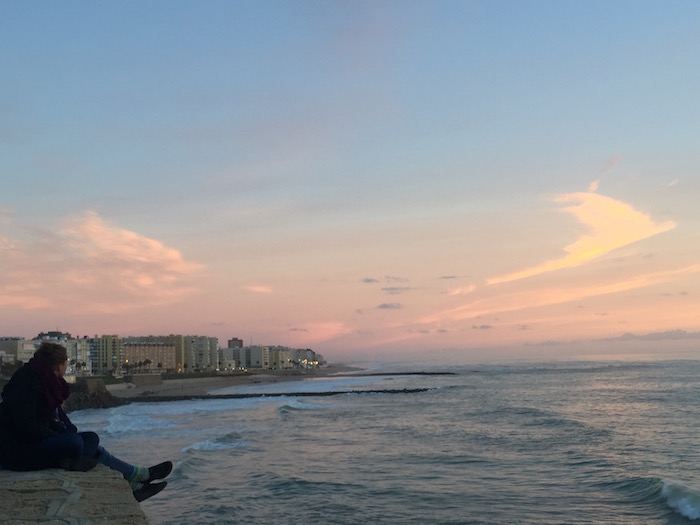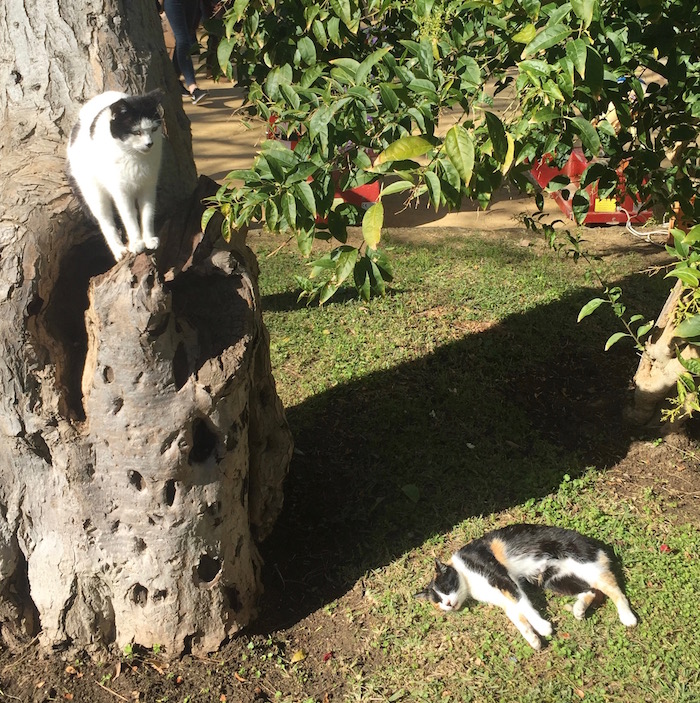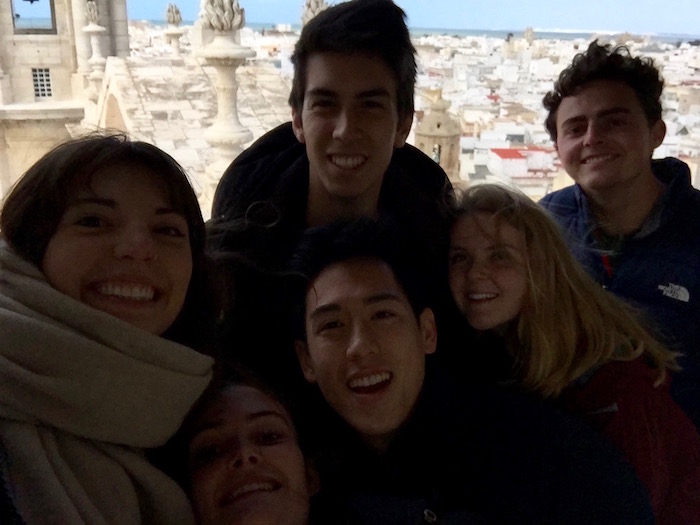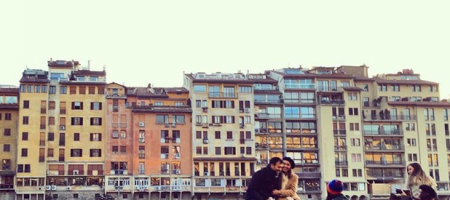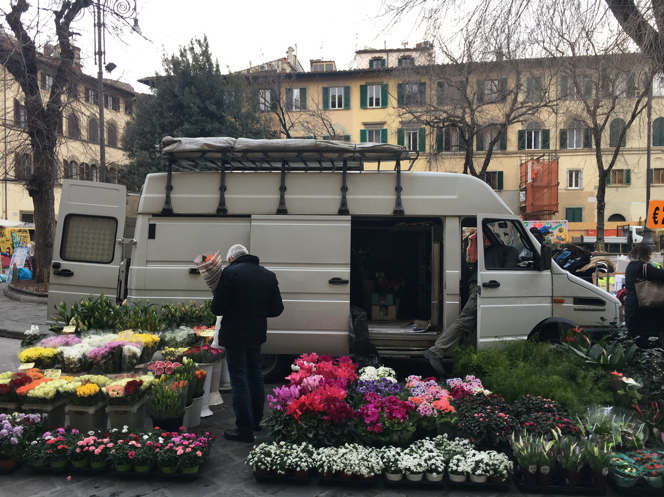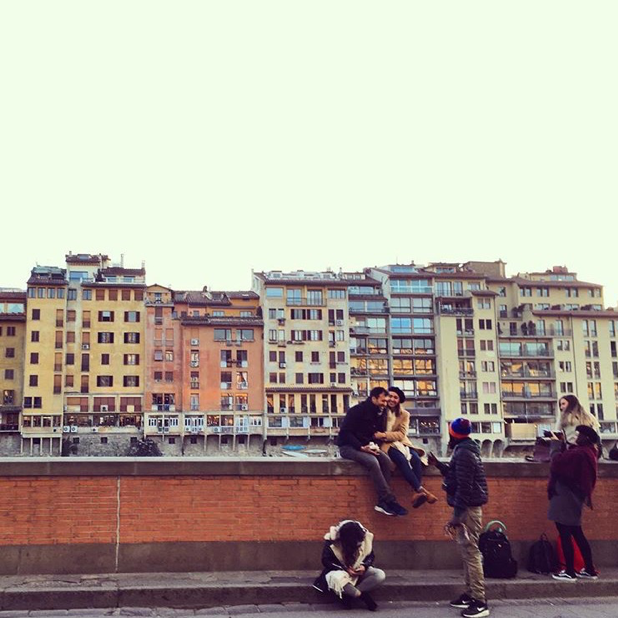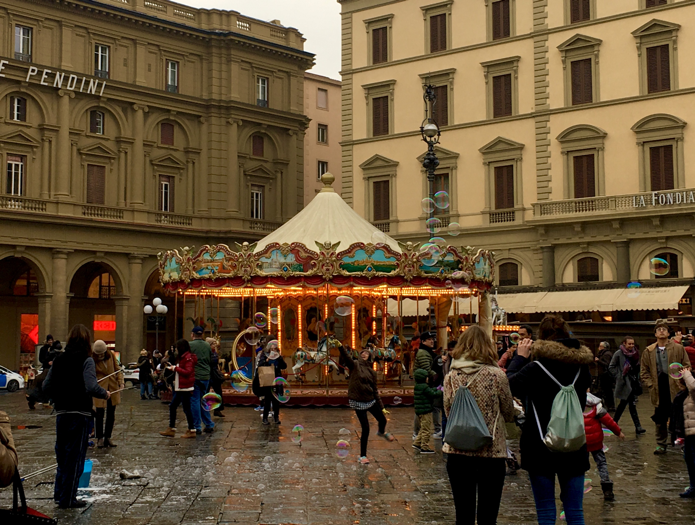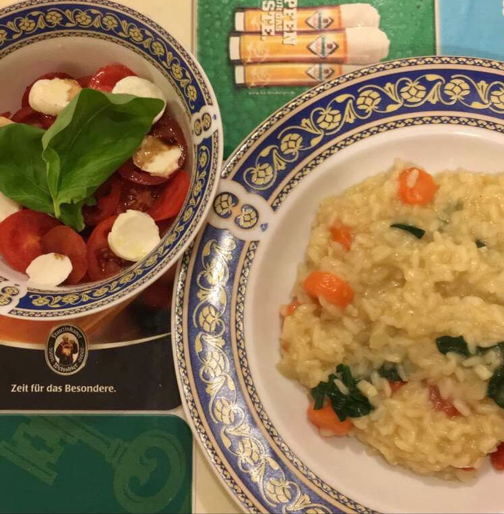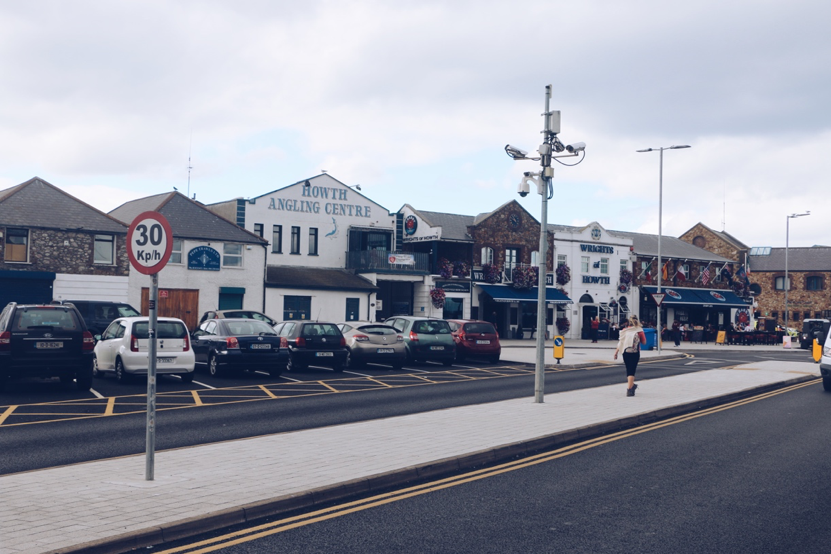After a 45-minute ride, we got off at our bus stop. It was raining pretty heavily and we got a little lost (yes, even with Google maps open on two different phones) but we made it to the school with one minute to spare.
We entered the building and were immediately greeted by two warm women working the school’s front desk. In quasi-Italian, we said hello and attempted to explain that we were the volunteers who were there to teach English.
Lizzy and I parted almost immediately as she was sent off to her assigned classroom. Then one of the women looked at me and motioned down the hall, “lavorerai in terza elementare”. Oh shoot. This was a verb tense I had yet to learn. And what did “terza” mean?
I asked the woman to please repeat (“ripete per favore”—my most used Italian phrase). Hearing the reiteration of unfamiliar words didn’t clarify much, but I nodded convincingly, like it did.
Ok. I could figure this out. “Terza”, probably like “terrace”… Ok. So I’ll just go upstairs whenever I find a staircase.
I went down an extremely long hallway that seemed to extend off into the abyss, but eventually I came across a staircase.
My out of shape, full-of-pasta body took me up the flight of stairs. I opened the door at the top of the staircase, only to see that I’d walked into a janitor’s closet. So nope. Terza does not mean terrace.
Still confused as to what to do next, I stood, staring into the closet at the assortment of brooms and mops and cleaning fluids. This was definitely not the classroom that I was supposed to be in.
“Ciao??” I heard from down the stairs.
I whipped around, “Ciao!” my head in a janitors closet sandwiched between two brooms, was not the way I’d expected to get introduced to the teacher I’d be working for.
Nevertheless the teacher greeted me kindly and with gratitude, and then led me into the gym where her 28 third graders were doing volleyball drills with a student teacher. Turns out “terza” means third.
She motioned for me to sit at the sidelines. I relaxed on a folding chair and observed the class dynamic.
I was immediately struck by the frequency and volume of the yells and hollers that bounced off the walls of the gym. To me, the tone of the two teachers’ scoldings sounded furious, especially when the smallest eight year old couldn’t get the ball over the net. Then again, I didn’t even know the words that were being yelled…. The teachers could have been shouting, “you, young man, are an incredible athlete!”, but maybe they were just screaming these positive affirmation very loudly and with significant aggression.
I also saw more classic Italian hand gestures, whipped out and flying around, in my first ten minutes in the gym, than during my entire month so far in Italy.
I guess I should have expected these sorts of impassioned outbursts, given the stereotypes I’ve seen in Italian movies from the yelling grandmother, stationed in the kitchen, going on fiercely about how her grandson needs to find a nice girl who can make him the lasagna he deserves.
Sitting there, thinking back to my own gangly, uncoordinated elementary school days, I couldn’t help but feel slightly rattled by these apparent scoldings. The Italian kids, however, didn’t seem to be phased even an iota. They were completely used to it, and even laughed it off.
After about a half an hour of observing surprisingly intense third grade volleyball drills and holding two tiny pairs of the students’ “occhiali” (reading glasses), the class finished their gym period. They began to line up and I joined them at the door.
A group of five girls giggled to each other, whispering behind their hands, and keeping their eyes fixated on me. With so much excitement about the new, tall, American in class, one girl, Marina, built up the courage and asked, “what is your name be?”
“My name is Willa, Mi chiamo Willa.”
“Wella” they all repeated in unison.
Asking me my name, with an extra verb at the end, seemed to be close to the only English the kids knew. My work was cut out for me, and I was excited.
Unlike most adults I’ve encountered, the kids didn’t dumb down their Italian for me, even though I clearly had a very minimal grasp on the language, but rather they spewed out Italian words at lightning speeds, erupting with rapid-fire questions.
“Sai di Hollywood?” (Are you from Hollywood), “Ti Piace i Lakers” (Do you like the Lakers?) “Hai incontrato Michael Jackson?” (Have you met Michael Jackson?) “Ti piace gelato alla vaniglia?” (Do you like vanilla ice cream?) etc.
One little girl asked me, “Da quanto tempo sei stato in un aereo dagli Stati Uniti a qui?” (How long were you in an airplane to go from America to here?) Feeling an irrationally strong urge to fit in amongst the group of eight year olds, I got a little flustered and attempted to answer her question quickly, like it didn’t even take me any thought. I rattled off, “14 anni”, to convey 14 hours. I felt cool, like I had carved out my spot in the in-crowd, until I noticed the completely appalled look on the little girl’s face. It then dawned on me that although I meant to say “14 ore” (hours), instead, I said 14 years! I had just convinced a little girl that I had spent more than half of my life on an airplane and she probably thought I was an alien.



